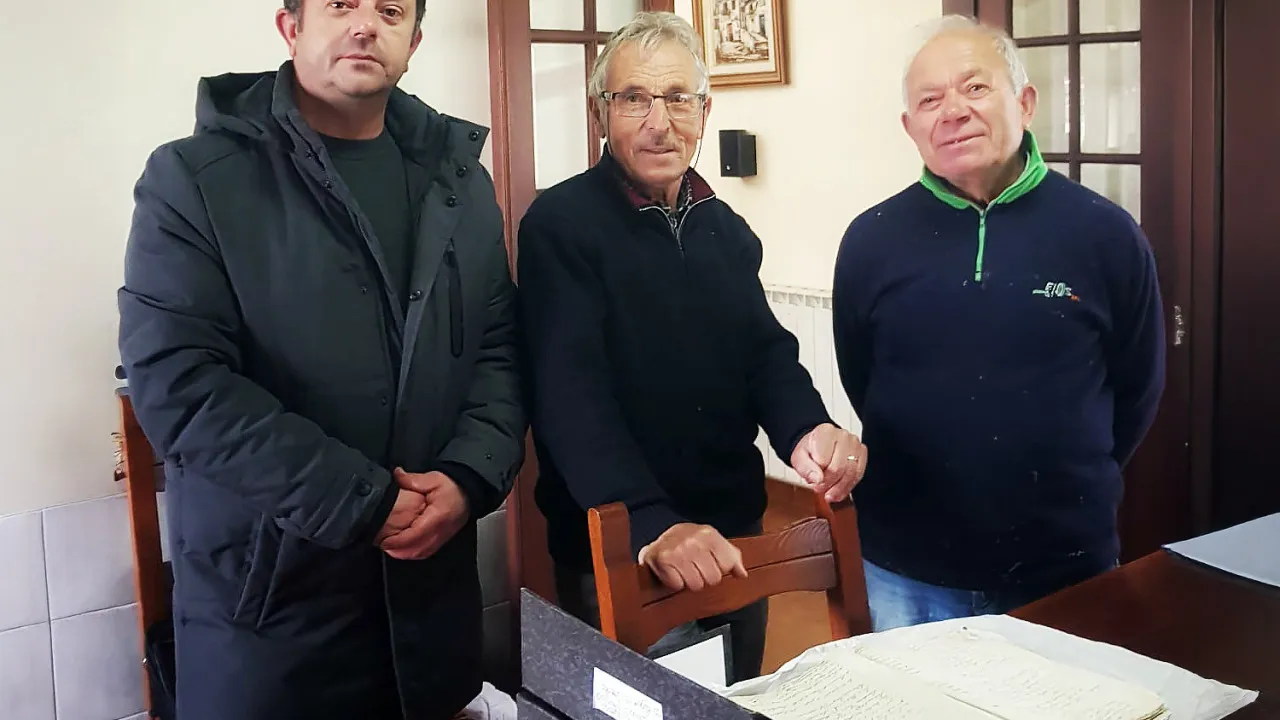The village of Aveleira, in the municipality of Vila de Rei, celebrated the arrival of electricity with firecrackers in 1979 and had to wait until the mid-1980s for piped water.
“The day the light came on was a day of celebration. The arrival of the light was more celebrated than April 25th,” basket maker José Luís Dias told Lusa, noting: “One thing is the fruit of the other, too!”
On April 25, 1974, the radio was turned on first thing in the morning, as usual, at his parents’ house. “When we got up, I knew there was something I didn’t even know what it was,” recalled José Luís, while working on wicker in the workshop he shared with his brother.
“Back then, we didn’t have tarmac in this village. In winter, it was mud and puddles. In summer, it was dust. To get here to the village, there was no tarmac and today, anyone who visits us can see the benefits that the revolution has brought us,” he said.
“We don’t have any people, but that’s another problem, another challenge, which today’s society has to solve,” said the 61-year-old craftsman. There are no children in the village. Aveleira’s youngest inhabitant is 15 years old.
In 1974, the elementary school, which also received children from the nearby village of Macieira, had 12 pupils. It burned down in the 2017 fire and was never restored. “The walls were left standing”. It now belongs to a private individual who intends to build a house there.
José Luís learned the trade with his father and saw all the young people of his generation leave. The village used to have around 70 inhabitants, today there are 17 or 18.
“Many of the young people left. Those of my generation have all left, some studied, others emigrated and haven’t come back. There are two or three who have a house here, but it’s a vacation home, and there’s a gentleman from my generation who was in Switzerland and is here now, retired,” he said.
When the news of the military coup that ousted the regime spread in Aveleira, the elders feared that it might be something less good, that it would bring hunger. “Without the media we have today, we were very oblivious to reality, but little by little we realized that something was happening, that there was a revolution, that there was a change, that it brought us improvements,” he said.
In the most isolated populations there were people who had no idea what was happening. “Yes, yes. That’s true. There are people who had no real perception of what happened at the time. They became aware of it, they built up their idea of the 25th of April or the revolution, but in the end they didn’t have the perception that they had in other places,” José Luís acknowledged.
Life in the inland villages went on as before. “There were demonstrations in Vila de Rei [the seat of the municipality] and there were politicians of the time who went around, as they did all over the country, trying to show and convince people of the benefits that would come from a revolution, but that’s it, the people here settled down and, with their simplicity, some ended up not even realizing what was happening,” he said.
However, when the first free elections were held in 1975, the population flocked to the polling stations. José Luís was not yet old enough to vote, but he accompanied his parents to the town and remembers the floods, the queues to cast his vote and the disagreements fueled by the delay.
At the age of 92, Manuel Cotrim, an ex-resinero who lives in Sedeada, one of the most inland villages, keeps in his memory various events and dates that have marked his life, but he has no memory of April 25.
“It’s natural that he didn’t realize it, there was no electricity, there were no televisions here, just a little battery-operated radio,” admitted his daughter, Manuela. Manuel Cotrim’s grandson, Nuno Nunes, is 37 and remembers there being no tarmac on the road through the village.
For his grandfather, in the days of the resin, life was good: “Before this burned down, it was good because the resin allowed us to manage and get money.”
On the other side of the street, José Prior (89), Manuel Cotrim’s brother-in-law, told Lusa that he followed all the events in Lisbon, where he lived after his military service.
“I got a good job at Alfândega. Until I left here it was a life of sacrifice,” he confessed, between blows to the small wood gathered outside his house.
He left the village at the age of 20, after also working in resin collection, and went ashore only a few times at a time when to get from Vila de Rei to Sedeada you had to balance the car over the stones on the road so the body wouldn’t hit the ground.
“People here didn’t even know what regime they were living under. After the revolution, everything benefited greatly,” he said.
Geographer Fernanda Cravidão, who carried out fieldwork with the students in the late 1970s and early 1980s, visited other villages where she came into contact with the isolation of the population. “I remember that in Aldeia da Pena, in the Serra de São Macário, in the municipality of São Pedro do Sul, there was a radio and people gathered to listen to the radio, I don’t know if it was the news, but the radio. And the idea I have is that they were completely unaware of what was going on in the rest of the country,” she described when contacted by Lusa.
A retired full professor, Fernanda Cravidão taught population geography at the University of Coimbra and aimed to take students to places they didn’t know existed. “People didn’t know what was going on in the country, let alone what April 25 had been,” she admitted.
The same perception was repeated in other places with few inhabitants and where there were no children.”April 25 wasn’t part of their worldview, at most, as in other villages north of the Tagus, they might associate it with the end of the war, because there were people who had children and grandchildren in the war, they knew the war was over. Now, if you asked them what April 25 was, they might not be able to answer,” he said.








